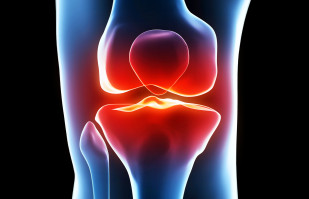You’re a busy person who likes to keep moving, doing the things you need and want to do. From chores to sports, dancing to driving your car, you need your knees to supply strength and support every day. But, if you knee pain is slowing you down, you may need to talk with your doctor to see if you have experienced a torn meniscus. If this is case, take the time to discover your treatment options from Rothman Orthopaedics.
Although the meniscus is only a small disk of fibrocartilage within the knee joint, you depend upon it every day. This crescent-shaped piece of tissues supports a significant portion of your body weight as you perform daily tasks like standing, walking, or even getting in and out of your car. It works as a shock absorber as well, allowing athletes to run and jump their way to victory. However, this important element of your knee joint is also vulnerable to injury, including tears.
A torn meniscus is most common among athletes who are active and participating in high impact activities. However, a mensical tear can occur even while you are simply out for a walk. Some patients describe the sensation as a “popping” or “catching” in their knee. Further symptoms may include pain on the sides of the knee, swelling, stiffness, and increased pain while squatting, twisting, or straightening the knee. Additionally, the knee joint may also feel unstable or even give way during attempted use.
Is Every Torn Meniscus Treated the Same Way?
Not every patient with a torn meniscus experiences the same level of severity. So, treatment can differ broadly, from simple monitoring to various types of surgical intervention. Even beyond the severity of theinjury, factors such as the patient’s age and activity level will be taken into consideration when determining what the best course of treatment will be.
How Are Mild Tears Treated?
Some patients are fortunate to experience only a minor tear to their meniscus. Typically, such a minor tear would be small and located toward the periphery or outside edge of the meniscus. For these cases, the best option may be monitored non-intervention. Such an approach involves a period of resting to allow the tear to heal as well as it can on its own. In this case, the tear will continue to be monitored over time, to ensure that further symptoms of pain and instability do not develop.
How Is a More Severe Meniscus Tear Treated?
A more severely torn meniscus will require a more active approach. Surgical treatment options include repairing the tear as well as surgical removal. When deciding which of these courses of treatment to pursue, it is important to talk with a doctor about your symptoms, current health condition, and activity level. All of these will help to make the final decision about your personalized treatment plan.
What is the Difference Between Surgical Repair And Removal?
Surgical repair is the most common treatment of a torn meniscus. Using advanced arthroscopic technology, the surgeons will be able to determine the extent of the injury and may be able to stitch the knee from the inside out. However, in some more severe cases, it is necessary to remove a part of the meniscus. In these cases, the surgeon will remove the most damaged part of the meniscus, leaving as much as possible to continue stabilizing the patient’s knee joint.
What is the Recovery Outlook for a Meniscal Tear?
For a mild tear, proper rest can offer effective recovery results. For patients who need to undergo surgery which repairs or removes a part of the meniscus, the rate of success is also very high. The procedure itself is typically a quick, outpatient procedure. Afterwards, a knee brace may need to be worn during the day for at least. The surgery may also be followed up with post-operative therapy which, if followed properly will help get the patient back to his or her normal activities soon.
Rothman Orthopaedics
When seeking treatment for your torn meniscus, make sure that you are getting the expert care you need. At Rothman Orthopaedics, our knee specialists have an outstanding level of experience and expertise, ensuring a strong start on your road to recovery. For more information, or to schedule an appointment, contact us today.





